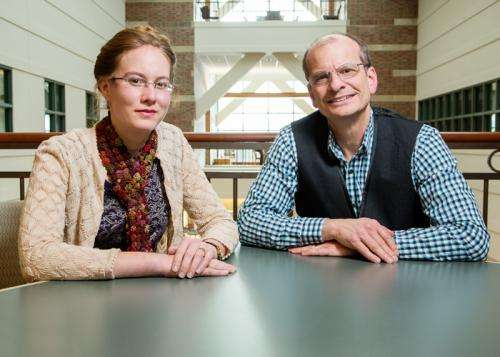How older adults conceptualize the cause of their high blood pressure

(Medical Xpress)—Older adults with hypertension may have dramatically different perceptions about the cause of their condition depending upon where they live, their ethnicity and other demographic characteristics, suggests new research that involved older adults in Arizona and Illinois.
Nearly 500 people with hypertension participated in the study, which aimed to better understand how patients conceptualize the cause of their high blood pressure in order to develop educational materials that improve patient self-care.
Patients' perceptions about the cause of their hypertension are important because these beliefs influence their learning about the disease, the strategies that they choose to manage it and how well they adhere to treatment, said Elise A.G. Duwe, the lead author of the study. She is an M.D./Ph.D. candidate in sociology in the Medical Scholars Program at the University of Illinois.
"Understanding patients' illness representations is particularly important for older adults because they are more likely to manage multiple chronic illnesses and have lower health literacy," Duwe said. "An in-depth understanding of their illness representations opens up the possibility for developing cognitive interventions in patient education."
The majority of patients – about 95 percent – are diagnosed with essential hypertension, which has no identifiable biomedical cause, Duwe said. "Still, patients come up with a cause to assist their conceptualization of the illness and their behavior" in relation to it.
The Arizona participants were at least 65 years old and taking at least one prescribed anti-hypertensive medication daily. Their counterparts in Illinois were at least 60 years of age and also had been diagnosed with hypertension prior to the study.
Participants were asked about the cause of their hypertension in an open-ended question on the Brief Illness Perception Questionnaire, a nine-item scale used to assess patients' cognitive and emotional representations about their illnesses.
Using participants' responses, the researchers identified six causal categories: behavioral, natural, physical, psychosocial, supernatural and other.
Behavioral causes included actions under a person's control, while natural causes represented inherent and unchangeable characteristics such as family history, genetics and age.
Physical causes included variable and environmentally responsive characteristics, such as weight, diabetes and cholesterol.
Psychosocial causes involved the social and psychological environments surrounding a person while supernatural causes represented spiritual sources, such as God, destiny or fate.
If participants responded that they didn't know the cause of their hypertension, or if they left the answer blank, the cause was coded as "other."
Participants in the Arizona sample mainly attributed their high blood pressure to natural causes (36 percent) – that is, to inherent and unchangeable characteristics beyond their control, such as genetics.
Arizona participants were split over the remaining causes, with psychosocial factors – which included stress related to family and work – narrowly beating out physical causes (25 percent and 24 percent, respectively).
However, Illinoisans mainly attributed their hypertension to physical origins (33 percent), followed by natural causes (25 percent), and psychosocial causes (22 percent).
Illinoisans were twice as likely as their counterparts in Arizona (18 percent versus 9 percent, respectively) to attribute their hypertension to behavioral causes, which included factors under their control, such as diet, exercise and smoking.
The disparity between the two samples relative to behavioral causes may have occurred because the Illinois sample contained a higher percentage of men – 49 percent, versus 25 percent in the Arizona sample. Prior research has shown that men are more likely to believe that their high blood pressure is linked to their behavior.
Minorities, who composed 20 percent of each sample, were more likely to attribute their hypertension to psychosocial and behavioral causes, while white participants more frequently indicated natural and physical causes.
Arizona participants' higher levels of health literacy and education – 76 percent had a high school education or greater versus 58 percent of the Illinoisans – may explain why they were more likely to view natural causes, the most biomedically accurate explanation, as the primary source of their hypertension, the authors wrote.


















